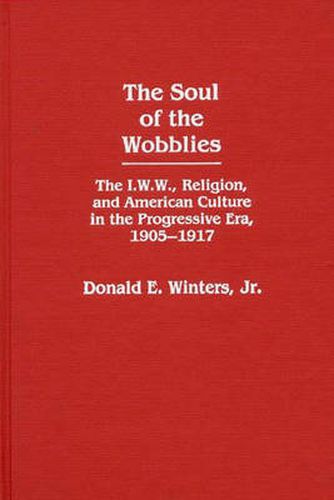Readings Newsletter
Become a Readings Member to make your shopping experience even easier.
Sign in or sign up for free!
You’re not far away from qualifying for FREE standard shipping within Australia
You’ve qualified for FREE standard shipping within Australia
The cart is loading…






This important work offers a new view of the Wobblies by examining not only their connection to American culture but their relationship to early twentieth-century American religion. Winters firmly believes that there is a strong religious character in the Wobblies. He focuses on figures such as Eugene Debs and Father Hagerty, depicting them as early pioneers of the unique beliefs the I.W.W. would adopt. He demonstrates and analyzes this religious motif in newspaper articles, speeches, autobiographies, songs, propaganda, and poems. Next, he examines the implications of the 1916 Wobbly-led strike on Minnesota’s Mesabi Range for the immigrant Finnish population and its religious values. He concludes by assessing the place of the I.W.W. in American labor history and by scrutinizing the relationship between the Wobblies, progressives, and utopian novelists in the period prior to World War I.
$9.00 standard shipping within Australia
FREE standard shipping within Australia for orders over $100.00
Express & International shipping calculated at checkout
This important work offers a new view of the Wobblies by examining not only their connection to American culture but their relationship to early twentieth-century American religion. Winters firmly believes that there is a strong religious character in the Wobblies. He focuses on figures such as Eugene Debs and Father Hagerty, depicting them as early pioneers of the unique beliefs the I.W.W. would adopt. He demonstrates and analyzes this religious motif in newspaper articles, speeches, autobiographies, songs, propaganda, and poems. Next, he examines the implications of the 1916 Wobbly-led strike on Minnesota’s Mesabi Range for the immigrant Finnish population and its religious values. He concludes by assessing the place of the I.W.W. in American labor history and by scrutinizing the relationship between the Wobblies, progressives, and utopian novelists in the period prior to World War I.